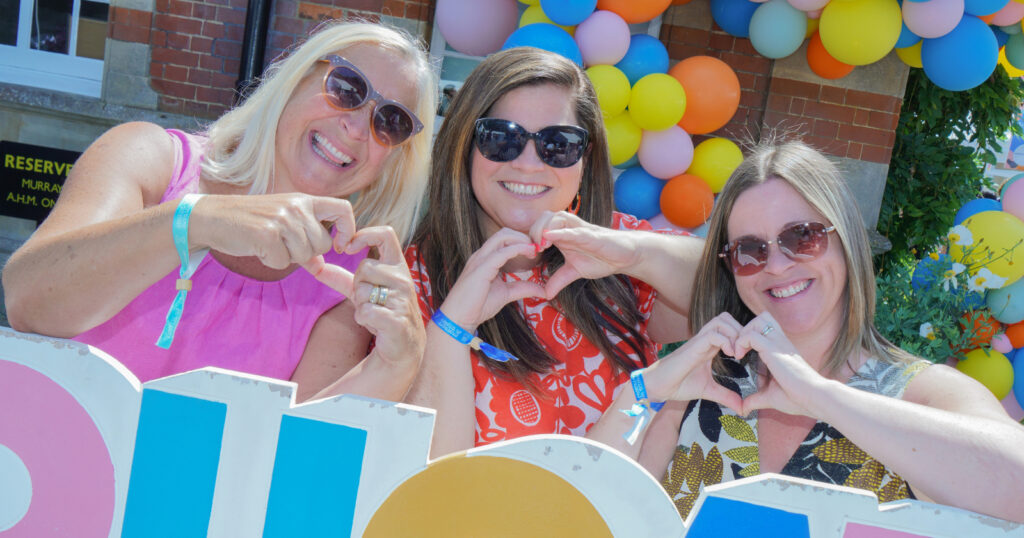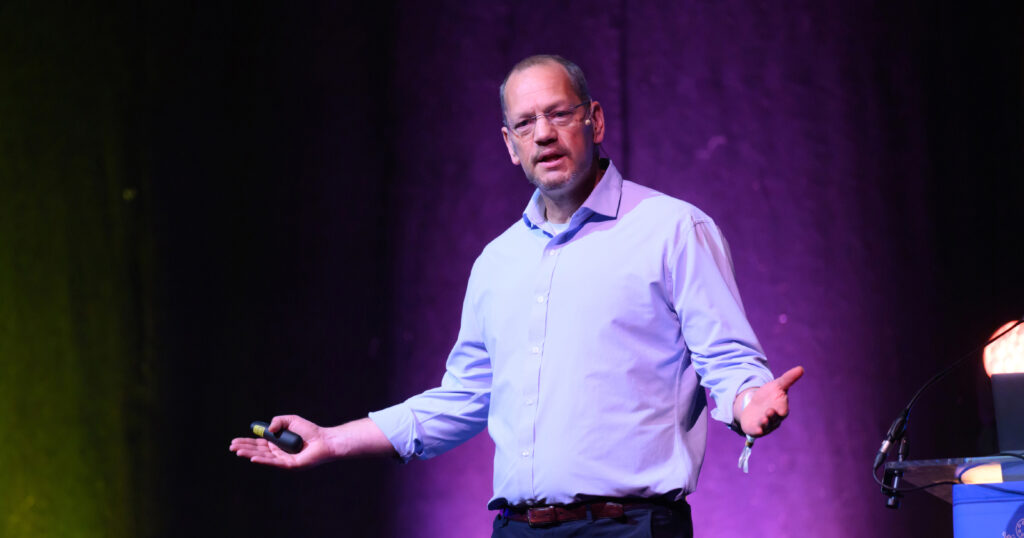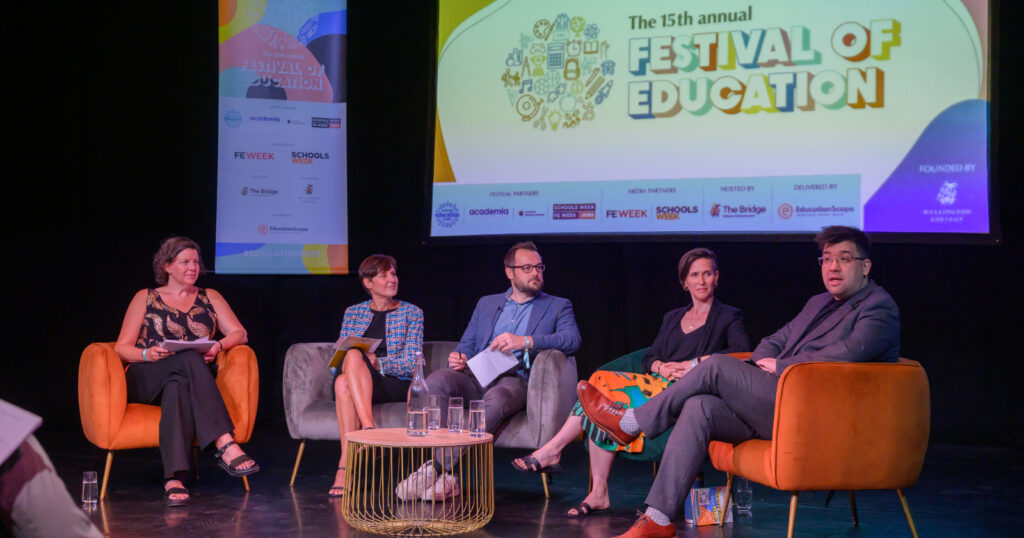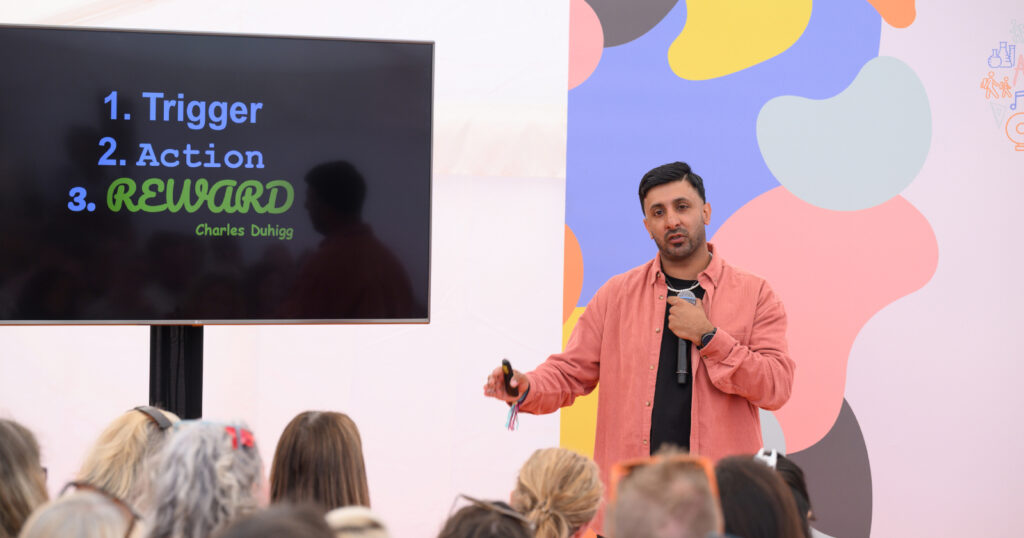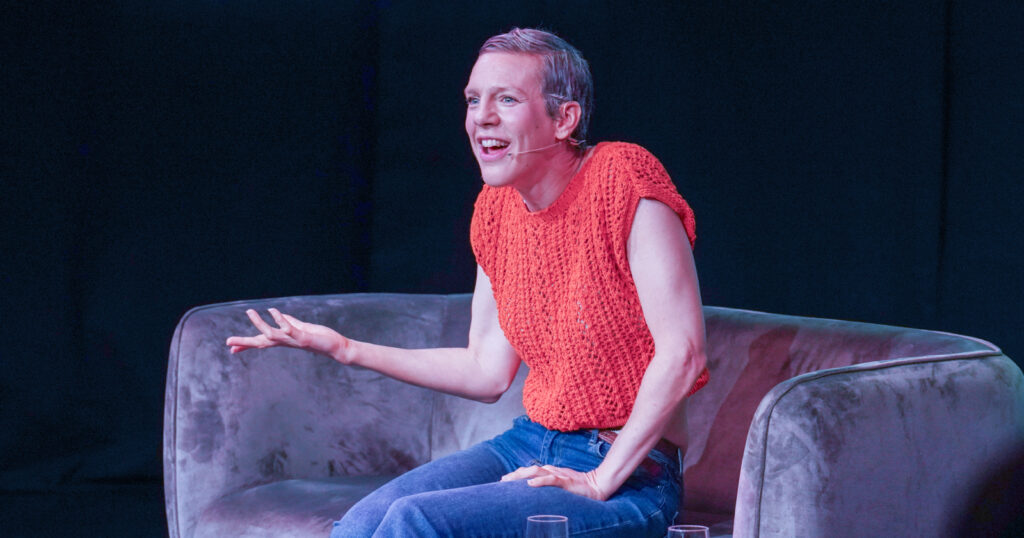This guidance is intended for individuals interested in applying to speak at the UK Festival of Education. Our mission is to provide an inclusive platform for sharing innovative ideas, fostering meaningful discussions, and promoting professional growth in a vibrant, relaxed atmosphere.
Who can apply to speak?
We have an open application process: anyone can apply to speak. We typically receive applications from teachers, leaders, researchers, policy experts, consultants, and a whole lot more! We particularly welcome applications from those currently working in schools, colleges, and early years settings.
If you are a commercial entity who would like to find out more about offering sessions at the Festival, please contact our Director of Partnerships, Adele Kilby, at adele.kilby@educationscape.com
Who will be in the audience?
The Festival of Education is dedicated to inspiring and empowering educators from all sectors. Primarily, our audience is made up of people working in schools and colleges. However, we also attract attendees from the wider world of education, such as early years, higher education, international sectors, civil service, policy, and education suppliers.
What themes can I speak on?
We are keen to continue broadening the offer at the Festival of Education to provide content that is relevant and useful for all those working in schools, colleges and early years settings, and across the wider world of education.
Below is a (non-exhaustive) list of the themes we will aim to cover at next year’s Festival:
Access to HE, Accountability, AI & Ed Tech, Alternative & Specialist Provision, Apprenticeships, Assessment, Attendance, Audit, Behaviour & Culture, Careers, Coaching, Cognitive Science, Creative Subjects, Curriculum, Disadvantage, Early years, Diversity, Equity & Inclusion, Estates, Finance, Further Education, Governance, HR, Inclusion & Belonging, Initial Teacher Education, International Education, IT, Leadership, Literacy, Mental Health, Networking, Oracy, Policy & Research, Professional Development, PSHE, Recruitment & Retention, Safeguarding, STEM, SEND, Social mobility, Student Voice, Sustainability, Teaching & Learning, Wellbeing, Workplace Learning
What format should sessions take?
The sessions are 45 minutes long (with at least 15 minutes between sessions for people to move between venues).
You can deliver a traditional presentation, or a more interactive session. For example, you could ask the audience to participate in polls, split into groups, or turn and talk. You can leave time for a Q&A, and our staff can support with roving microphones. You might even want to propose something that is majority audience-driven, such as a structured networking session.
It might help to think about the audience experience, such as their prior knowledge, potential for engagement, and learning objectives, as you might when preparing a session for students.
What makes a good session title?
Titles should be clear and concise; we recommend a length of 3-12 words. Remember that Festival-goers will be browsing over 200 sessions; you will want your title to be enticing, and easy to understand at a glance.
Here are some examples of titles that have proved popular in the past:
- Modelling emotionally intelligent leadership
- 10 ways to improve writing in your classroom
- Retrieval practice…but better!
- How to lead change teachers won’t roll their eyes at
- What works for working-class kids?
- Belonging. Meeting the needs of the many and the needs of the one.
- Leading AI in schools and colleges – what have we learnt
When designing your session, please aim to make it relevant and accessible to the broadest possible audience, given your area of expertise. For example:
| Narrow scope | Target audience | Broader scope | Target audience |
| Best practice cases of dyslexia support in schools | School teachers and SENCOs | Supporting students with dyslexia – best practice examples | School and college teachers and SENCOs |
| How to design a secondary history curriculum across a trust | Heads of history or secondary curriculum leads working in trusts | Curriculum design principles, using history as an example | Curriculum leads or heads of any subject in any setting |
How to describe your session
You don’t need to list everything you will cover, but do give attendees enough of a sense of what the session will be about to help them decide whether it is likely to be a good fit for them. Many Festival-goers have told us they like interactive elements to sessions, so if yours contains audience participation, you might want to signpost that!
We have a 700-character limit, but don’t feel you have to use it all up.
Here are two examples of session descriptions of different lengths:
- What does research tell us about what makes high-quality questioning, and how can teachers apply key messages in their lessons to become ‘questioning experts’? This session will explore both these topics and offer opportunities to practice what you’ve learned. Expect to leave with practical strategies to implement in the classroom. [337 characters]
- We’ve all experienced that moment – another new initiative arrives in school, and suddenly we recognise it as something we tried years ago under a different name. This session will explore why educational change often feels like Groundhog Day. You’ll hear real examples of schools that broke free from repetitive cycles to create meaningful change. With time for peer discussion, we will explore how to distinguish between superficial rebranding and genuine progress, showing how to work with your school’s institutional memory rather than against it. Perfect for leaders seeking to build on what already works while embracing real improvement. [644 characters]
Accessible application process
If you need to submit an application in an alternative format – e.g. video or audio, please contact us at foe@educationscape.com
Note: Some elements of this application are marked as “optional”. This is to enable you to submit an application that plays to your strengths. You are not expected to complete all sections and you will not be penalised for leaving “optional” sections blank.
What is the recommended number of speakers per session?
Most sessions will be delivered by one speaker, but it may make sense to have multiple speakers to deliver the content effectively – for example, you may have a researcher explaining some research, paired with a classroom practitioner talking about how to put it into practice. Please ensure that the role of each speaker is clear in your application – you can use the Additional information” section if necessary.
If you are proposing a panel discussion, we recommend a chair plus 2-4 panellists. If there is a strong reason why more than five speakers are needed for your session, please mention who this will be in the “Additional information” section of the application form. If your application is successful, we will contact you for more information.
What will the venue be like?
Our venues are a mix of classrooms, marquees and large rooms at Wellington College, with seated capacity ranging from 24 to 200. Most marquees (and some rooms) will have a stage at the front. All have AV equipment. Most venues are set up with the audience sitting in rows of chairs. If your session requires a particular set-up, please mention this in the “Additional information” section of the application form.
We will confirm allocation of venues once all the content has been finalised. We aim to do this at least two weeks in advance of the Festival.
When will my session(s) be?
We will contact you in advance of the Festival to let you know which day and time has been allocated for your session. If a speaker is only available on a specific day, please let us know in your application.
Any other tips?
If you are part of the wider education sector (e.g. a charity or consultant) you may want to consider co-presenting with someone currently working in an education setting, to ensure your session is as relatable as possible to the audience.
If you are proposing a panel discussion, please keep in mind that these tend to work best when they feature a broad range of opinions, knowledge, and lived experience of the topic under discussion.
We recognise the value of foregrounding young people’s voices and welcome their participation in sessions.
We look forward to receiving your application!

